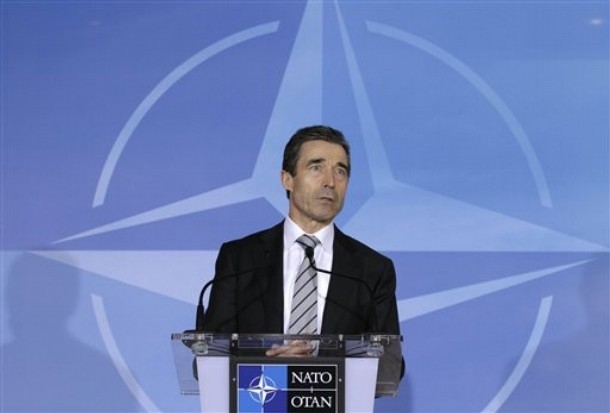NATO has been given an important role in the campaign against Moammar Gaddafi’s regime in Libya. However, this important task will not likely settle the on-going debate about NATO’s future.
It has become popular in recent years for academics and commentators to question the validity of the NATO commitment for the United States and Canada and their European allies. After all, didn’t the end of the Cold War, for which NATO was originally designed, remove the alliance’s rationale? Some analysts have called for NATO to be replaced by US cooperation with the European Union’s Common Security and Defense Policy. Others simply call for Europe to take over responsibility for its own defense.
For some Europeans, NATO still means “US domination.” They want to escape from the mantle of US militarism draped on the alliance. For some Americans, NATO is understood as “those weak-kneed Europeans.” They want to force Europeans finally to take care of their own security interests, without burdening the United States. NATO stands for “Naturally America Takes Over,” according to one friend!
NATO is criticized for the variety of allied approaches to their responsibilities in Afghanistan, with the Germans and some others conducting humanitarian aid and reconstruction missions in the relatively quiet north while the United States, the UK, Canada, Australia and a handful of others were taking on the more challenging combat missions in the south and east.
So, if this organization is over the hill, why is a new headquarters complex under construction outside Brussels? Is this just bureaucratic inertia, or a Belgian jobs program?
Let me suggest that there are some very good reasons why the alliance continues, and is likely to continue for many years to come.
First, the 1949 North Atlantic Treaty did not once mention the Soviet threat, but rather focused on the values and interests shared by the members. This omission was fortuitous for the Alliance’s post–Cold War survival. The treaty simply says that the Allies will work together to respond to an attack if necessary, and otherwise to protect their interests. This elegant treaty works as well now as it did during four decades of Cold War.
Second, one reason the treaty works today is that it is based on and protective of member state sovereignty. This factor is a source both of some of NATO’s weaknesses and some of its strengths. It means the alliance cannot act unless all 28 of today’s members are willing to act, or at least willing to remain silent rather than object. But this built-in protection for sovereignty of the member states lessens fears of being dragged into conflict unwillingly as a result of their membership. At the end of the Cold War, none of the 16 allies left and an additional 12 states have since joined.
Third, the environment that NATO operates in today is not nearly as threatening as it was during the Cold War. In those days, Europe was at the center of the superpower confrontation which, in the case of misjudgments by either the United States or the Soviet Union, could have had devastating consequences for the continent. Today, the threat of a cataclysmic nuclear exchange has diminished, but the world is much less stable. We have already witnessed how failed states, terrorism, civil war and unrest can threaten the interests of NATO states, including those of the United States and Canada.
Fourth, there simply are no good alternatives. Those who propose organizing transatlantic cooperation as a grand bargain between the United States and the European Union need to look at what happened to European unity over Libya. While two of the leading European powers, France and the UK, led the charge on behalf of removing Moammar Gaddafi, Germany sat on the sidelines. One European diplomat was quoted as saying that it represented the death of the EU’s Common Security and Defense Policy. This assessment may go too far. But the affair does capture the reality that, unless and until Europeans have formed a unitary state , the members will reserve decisions that affect vital national interests to themselves.
Finally, even if future transatlantic actions have to be done via ad hoc coalitions, as things started out with the no-fly zone over Libya, NATO’s continuation remains critically important. If NATO were not maintaining and reinforcing habits of political/military cooperation on a daily basis, the ability to construct ad hoc military coalitions that actually work under fire would be progressively degraded. This would leave smaller states with diminished security and the United States with fewer partners able to make meaningful contributions in future battles.
The bottom line is that NATO is a necessary but insufficient alliance. It is “insufficient” because the transatlantic allies need to expand cooperation in order to develop better ways to use non-military instruments of security. The point would be to do a better job of defusing crises before they lead to conflict, and to deal collectively with conflict and post-conflict environments should crisis prevention fail.
Stanley R. Sloan is a visiting scholar at Middlebury College and author most recently of Permanent Alliance? NATO and the Transatlantic Bargain from Truman to Obama (Continuum Books, 2010).
Image: nato-fogh-rasmussen-libya.jpg
